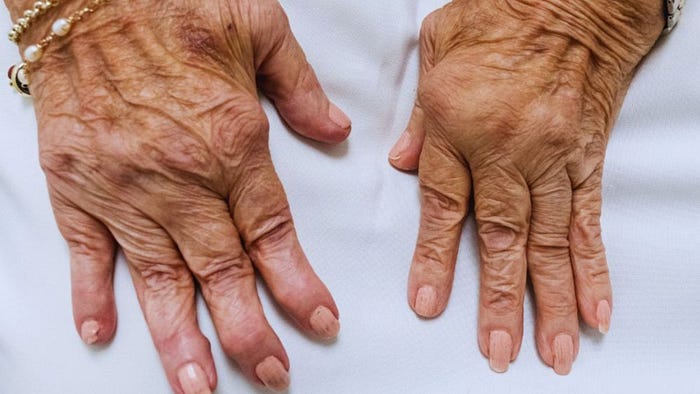Rheumatoid Arthritis Treatment: Why Early Diagnosis Matters
Rheumatoid Arthritis Treatment:
Why Early Diagnosis Matters
Rheumatoid Arthritis Treatment
Functional rheumatology offers a forward-thinking approach to managing autoimmune and rheumatic conditions. Unlike traditional methods that focus mainly on relieving symptoms, this approach addresses the root causes of these complex health issues. If you’re dealing with ongoing symptoms, feeling stuck in your progress, or looking for care tailored to your needs, functional rheumatology could be the path toward long-term relief and wellness.

At Brickell Rheumatology Wellness Center, we focus on early rheumatoid arthritis treatment to relieve symptoms, protect your joints, and support an active lifestyle. Our team provides personalized care and advanced therapies to help you move with comfort and confidence.
Reclaim Your Comfort and Mobility
Call Brickell Rheumatology Wellness Center at (305) 928–6001 Today!
(305) 928–6001
Why Prompt RA Treatment Makes a Difference
Limits Joint Damage
Starting treatment early reduces inflammation that can harm joints, and without timely care, rheumatoid arthritis can quickly damage cartilage and bone. Using disease-modifying antirheumatic drugs (DMARDs) within three months of symptom onset can slow or stop this process. Early treatment preserves joint function, reduces the risk of permanent damage and deformities, and may reduce future surgery needs. Modern diagnostic tools, like anti-CCP antibody tests and imaging studies, enable earlier and more accurate RA detection, allowing treatment to begin before visible damage occurs.
Reduces Pain and Swelling
Early treatment often brings noticeable relief from pain and swelling. Anti-inflammatory and disease-modifying medications work to calm the immune response that causes joint discomfort. By managing inflammation early, patients experience quicker relief, better comfort, and improved mobility. This physical improvement supports an active lifestyle and helps individuals carry out daily activities more easily.
Prevents Joint Deformities
Unchecked inflammation leads to permanent deformities in joints, such as twisted fingers or misaligned wrists. These changes make movement painful and difficult. However, early intervention halts disease progression before it causes structural joint changes, preserving alignment and function. This approach not only prevents deformities but also protects a person’s ability to perform fine motor tasks, such as writing or using tools. Maintaining joint structure also supports a more normal appearance, which can also positively affect self-esteem and mental well-being.
Preserves Mobility and Function

When treated early, rheumatoid arthritis will not limit your movement or daily routine. Early treatment supports joint flexibility and muscle strength, helping you stay active and independent. Maintaining joint function reduces the need for assistive devices or caregiving and allows continued participation in meaningful activities. It’s not just about managing symptoms; it’s about protecting your independence and lifestyle.
Supports Long-Term Health Outcomes
RA also raises the risk of serious health issues such as heart disease, osteoporosis, and lung complications. Early treatment helps control systemic inflammation, which is a major contributor to these comorbidities. Addressing RA at an early stage can help reduce the likelihood of these related health issues and improve overall longevity. Long-term health outcomes improve when inflammation is controlled quickly and consistently from the start.
Enhances Quality of Life
Rheumatoid arthritis affects more than just the joints — it can impact emotional well-being, too. Ongoing symptoms may contribute to anxiety, depression, and social withdrawal. Starting treatment early helps relieve discomfort and supports emotional resilience, confidence, and a sense of independence. As people regain control over their health, they often reconnect with daily routines, relationships, and activities they enjoy, leading to a more balanced and engaged life.
Reduces the Need for Aggressive Treatment Later
Treating RA may prevent the disease from reaching a stage where high-risk medications or surgeries are necessary. When caught early, low-dose medications may be enough to control symptoms. Waiting too long could lead to more complex drug regimens or joint replacement surgeries. Early intervention simplifies treatment plans and lowers the chances of adverse side effects from stronger medications. It also reduces overall healthcare costs by preventing complications that would otherwise require intensive care.
Increases Chances of Remission
Remission means the disease is inactive or has minimal activity, and it’s more achievable when treatment begins early. This ‘window of opportunity,’ usually within the first six months of symptom onset, is crucial for starting therapy to maximize long-term control. Early use of DMARDs and biologics helps suppress the autoimmune response in RA before it becomes deeply established. Patients who begin treatment early are more likely to achieve remission and stay symptom-free longer, offering a sense of optimism and the possibility of a symptom-free future.
Frequently Asked Questions
- What Is Rheumatoid Arthritis?
Rheumatoid arthritis (RA) is a chronic autoimmune disorder where the immune system targets the joints, causing inflammation, pain, swelling, and stiffness. If left unmanaged, it can result in joint damage and decreased mobility. RA commonly affects joints on both sides of the body, such as those in the hands, wrists, and knees.
- How Is Rheumatoid Arthritis Treated?
Rheumatoid arthritis treatment focuses on slowing disease progression and reducing inflammation. Doctors typically begin with disease-modifying antirheumatic drugs (DMARDs) like methotrexate for its proven effectiveness, safety, and affordability. Other options include sulfasalazine, leflunomide, and hydroxychloroquine. If symptoms continue, biologics such as etanercept, adalimumab, or infliximab may help protect joint health. Non-steroidal anti-inflammatory drugs (NSAIDs) and short-term corticosteroids can relieve pain and control flare-ups, although long-term steroid use requires monitoring. Regular physical therapy enhances joint flexibility, muscle strength, and range of motion while staying active and maintaining a balanced diet supports overall health. In cases of severe joint damage, surgery may restore function. Early diagnosis and ongoing care help manage RA.
- Can Rheumatoid Arthritis Be Cured?
While there is currently no cure for RA, early and ongoing treatment can help many people achieve remission, where disease activity is minimal or absent. A combination of medications, healthy lifestyle choices, and physical therapy can help manage symptoms, protect joints from further damage, and enhance overall quality of life. With early and effective treatment, many people with RA can achieve remission or significantly reduce their symptoms. Regular monitoring and timely adjustments in treatment can keep the disease under control and allow individuals to lead active, fulfilling lives.
Rheumatoid Arthritis Treatment

Starting RA treatment early offers a strong chance to manage symptoms effectively. At Brickell Rheumatology Wellness Center, we provide timely, personalized care that aligns with your lifestyle and health goals. Although rheumatoid arthritis is a lifelong condition, it doesn’t have to limit your life. With the right treatment and ongoing support, many people remain active, engaged, and in control of their health.
Choosing Dr. Bojana Jovanovic’s functional medicine approach complements standard treatments, enhancing overall well-being and promoting long-term health. While conventional medications are key to managing RA and preventing joint damage, combining them with thoughtful lifestyle changes often improves daily comfort. Discover how personalized care can make a meaningful difference. Start today to ease joint pain, protect your mobility, and stay connected to the activities you love.
Book Your Consultation Today
and Start Your Journey to Relief
Call Brickell Rheumatology Wellness Center at (305) 928–6001 Today!
(305) 928–6001
Brickell Rheumatology Wellness Center
40 SW 13th St Ste #402, Miami, FL 33130, United States
(305) 928–6001
Services
- Rheumatoid Arthritis Treatment
- Osteoarthritis Management
- Lupus Treatment
- Gout & Autoimmune Disease Care
- Functional Rheumatology
Contact
- 40 SW 13th St Ste #402, Miami, FL 33130, United States
- (305) 928–6001
- info@brickellrheumatology.com
- Mon — Fri: 9:00am — 3:00pm
- Sat — Sun: Closed

Inquire Today
Book an Appointment
The post Rheumatoid Arthritis Treatment: Why Early Diagnosis Matters first appeared on Brickell Rheumatology Wellness Center

Comments
Post a Comment